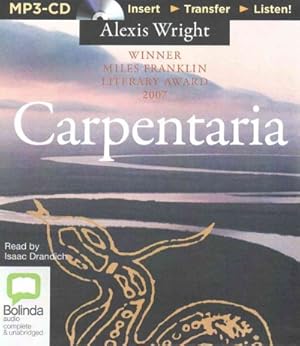

This is not to speak of an essential difference, if by ‘essential’ we mean something immutable or fixed, but a difference made in cultural practices. Into considerations of what these differences might be, I would like to install questions of embodiment and different capacities to feel, to sense, the country. To speak of sovereignty is always to speak of difference: different claims to land, but claims, too, about differences between the people making those claims. ' What is the meaning of the claim made by many Aboriginal people that their relationship to country is a vital one: vital in the sense of a living relation, one that might be said to carry life itself? (Rose) It can be taken to be a claim of sovereignty, not only in relation to the land but, inextricably bound with this, a claim of a sovereign subject, or what Alexis Wright has called a sovereignty of the mind. Journeys of migration, environment transformations, and the marginalisation of populations are translated in an Aboriginal allegorical mode that allows European readers, through self-reflexivity, to rediscover the Australian continent through the perceptions, actions and emotions of Stranger-figures.' (Publication abstract) Sovereign Bodies of Feeling-‘Making Sense’ of Country Alison Ravenscroft,

Indeed, through the experiential and poetic meetings of Stranger-figures with Australia, Wright does not depict the initial moment of discovery as a nation-building event rather she re-narrates it as a counterdiscursive episode of environmental historical rediscovery. In this essay I argue that by drawing attention to the interweaving of language and experience and by dramatising the relationship between organism and environment, ‘ecopoetic encounters’ allows readers to rediscover major episodes of Australian environmental history. In The Swan Book, the character of Bella Donna seeks refuge in the nostalgia of swan stories after the disappearance of her native lands due to climate change her first encounter with Australia is characterised by slow violence and results in a profusion of stories. In Carpentaria, the Stranger-figure of Elias Smith is left amnesic after surviving a shipwreck during a cyclone his first encounter with Australia is extremely violent and results in a loss of personal (hi)story. In this narrative system, the discovery of Australia is not realised by exploring colonisers, but by vulnerable strangers who apprehend the continent both experientially and linguistically. 54-67 ) Abstract 'In Carpentaria (2006) and The Swan Book (2013), Alexis Wright establishes an allegorical mode where she reimagines Europeans' first encounters with Australia from an Aboriginal environmental perspective.

Ecopoetic Encounters : Amnesia and Nostalgia in Alexis Wright's Environmental Fiction Arnaud Barras,Īustralasian Journal of Ecocriticism and Cultural Ecology ,ĥ 2015 (p.


 0 kommentar(er)
0 kommentar(er)
